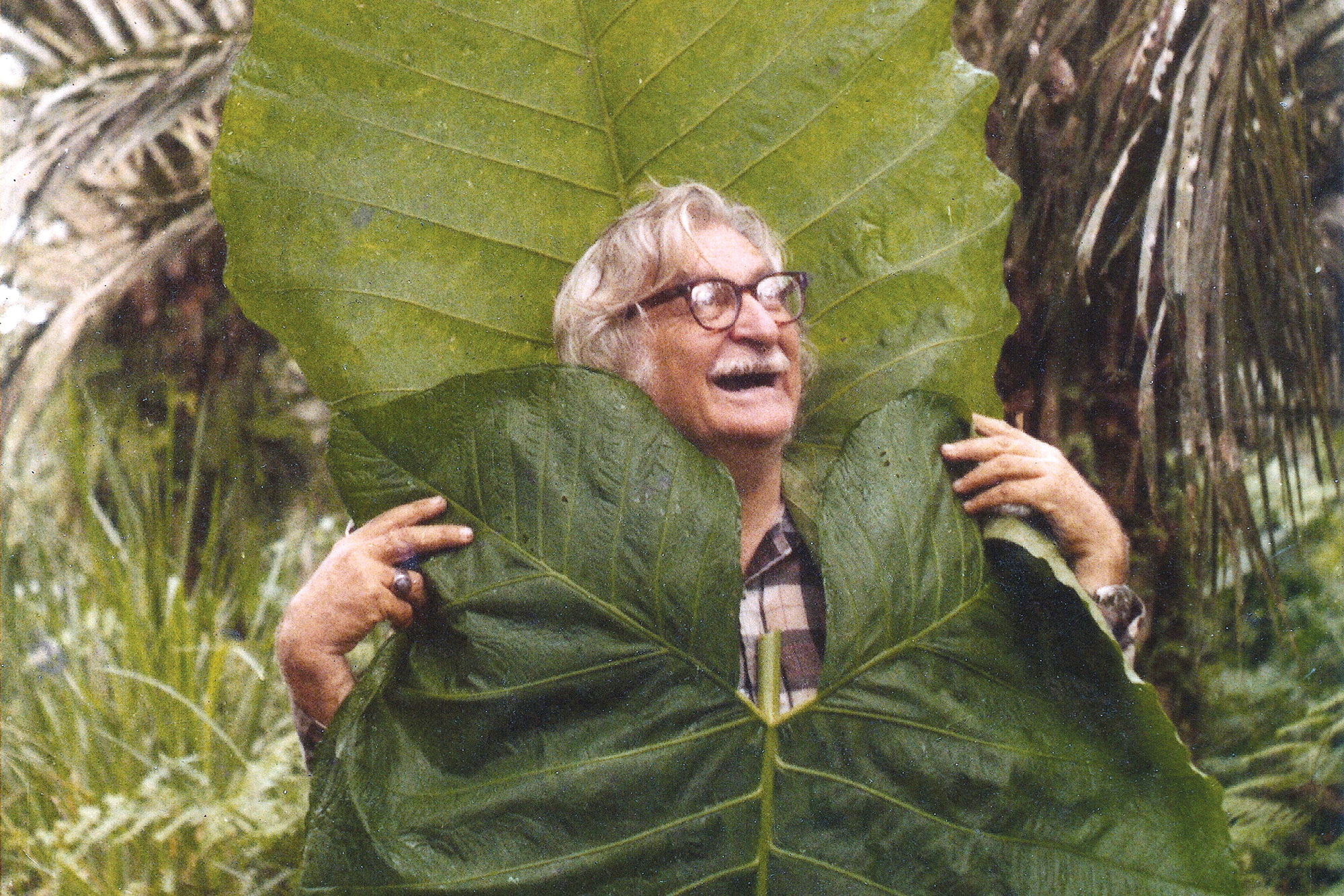Cinema Tropical will be presenting the special film series ‘Cinema Brasileiro’ as part of a full-garden homage to iconic Brazilian landscape architect Roberto Burle Marx organized by the New York Botanical Garden this summer in New York City. “Brazilian Modern: The Living Art of Roberto Burle Marx” will run Saturday, June 8, through Sunday, September 29, featuring a full slate of accompanying programs including the special film program presented in partnership with Cinema Tropical, programmed by Mary Jane Marcasiano, and organized by Pilar Dirickson Garrett.
The eight-film ‘Cinema Brasileiro’ program will explore the themes central to Burle Marx’s life and times. The series will open and close with João Vargas Penna’s recent documentary film Landscape Film: Roberto Burle Marx, which premiered this past October at the 42nd Mostra São Paulo International Film Festival. The film is a journey through the art and life of the Brazilian landscape architect and painter best known for the iconic black-and-white mosaic promenades that line Rio de Janeiro’s Copacabana Beach.
Also programmed in the series are Paulo Thiago’s acclaimed music documentary This is Bossa Nova / Coisa Mais Linda, on the popular Brazilian music born in the early-1950s; Bruno Barreto’s biopic drama Reaching for the Moon / Flores Raras starring Miranda Otto and Gloria Pires, which narrates the torrid love affair between American poet Elizabeth Bishop has a love affair with architect Lota de Macedo Soares.
‘Cinema Brasileiro’ is also featuring Miguel Faria Jr.’s music documentary Vinicius on the acclaimed Brazilian songwriter and poet Vinicius de Moraes; Philippe de Broca’s 1964 film That Man from Rio starring French actor Jean-Paul Belmondo; A Casa do Tom, the documentary film on international music legend Antonio Carlos Jobim directed by his widow Ana Jobim; Luiz Eduardo Lerina’s documentary Templo Verde, a fascinanting journey through the diversity and exuberance of the flora and fauna of Rio de Janeiro’s iconic Botanical Garden; and Malu Martino’s documentary Margaret Mee and the Moonflower / Margaret Mee e a Flor da Lua, on the work and legacy of the British-born botanical illustrator in the South American country.
In yet another stateside nod to a master of Brazilian modernism, “Brazilian Modern: The Living Art of Roberto Burle Marx” comes on the heels of the Jewish Museum’s 2017 retrospective Roberto Burle Marx: Brazilian Modernist, the first U.S. exposition to focus on the landscape architect’s full range of artistic output (from promenades to gardens, from paintings to biomorphic jewelry designs).
The show likewise marks the latest addition to a recent lineup of homages to masters of Brazilian art and design in New York City, reflecting and fortifying the pleasing rise in attention to Brazil’s philosophical and artistic movements by major New York museums and cultural centers. Paving the way for Burle Marx are past solo exhibitions of neo-concretists Lygia Pape at the Met Breuer and Helio Oiticica at the Whitney, both in 2017, and of formative modernist pioneer Tarsila do Amaral at the Museum of Modern Art this past year.
Roberto Burle Marx, perhaps the most cross-disciplinary of the Brazilian modernists in his capacity to move beyond the rigid structures of fine art or exhibition by applying (and molding) modernist philosophies to nature itself, is central to Brazil’s national visual identity and yet little known outside the country. Although Burle Marx partnered regularly with fellow master Oscar Niemeyer, his name has not persevered internationally in the same manner or with the same level of cache.
For full information on the film series, please click here.





